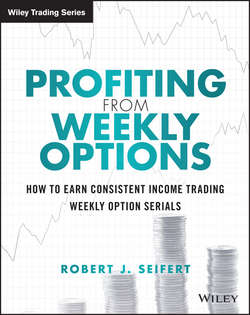Читать книгу Profiting from Weekly Options - Seifert Robert J. - Страница 17
На сайте Литреса книга снята с продажи.
Chapter 2
Modern Markets
ОглавлениеIn this chapter, we are going to look at the major markets that we will be trading weekly options on, and compare their similarities and differences. Before you can attempt to trade any market you must have a thorough understanding of how it functions. All markets are not the same, and it is a mistake to try and trade them if you are not familiar with the way that they trade.
Twenty-first-century financial markets no longer rely on face-to-face barter, as they had for centuries; they are conducted through electronic transfers. The markets we will be concerned with are highly sophisticated, and will always result in the exchange of funds. Almost all thriving markets rely on a form of auction. The party who wants to buy something will place a bid. The counterparty will place an offer. If no one is willing to yield, the market does not trade. When a trade does occur, it is called price discovery. This is one of the most important terms you will learn in trading. It is the market mechanism that allows the transfer of value.
Equity Markets
Most investors refer to the equity markets as stock markets. Equity markets are the most famous investing venues, but they are relatively small when compared to debt and currency markets. This chapter will begin by looking at the US stock markets.
There are many ways to get equity in a company, and one is to buy stock. However, not all stock markets are the same. You have the very liquid big capitalization stocks that are traded on a variety of platforms, and exchanges, and you have over-the-counter stocks (OTC) that can vary from Pink Sheets to penny stocks. Our discussion will only be about securities that are traded on the major exchanges.
Who Do I Buy Stock From?
When you buy a stock, who actually sells it to you?
Is it your broker?
Is it the underwriter?
Is it the mysterious short seller?
The answer may surprise you. It is the company that issued the stock! This is very significant, and it will help you to understand the “flow of funds” we will discuss later.
When a company decides to offer stock to the public, it goes through a series of steps that will result in an underwriting and an IPO (initial public offering). If it is a small offering, it will be conducted in the OTC market, or even a smaller stock market known as “penny” stock. No matter which market the firm uses, when it offers stock the originator's interest will become diluted.
Конец ознакомительного фрагмента. Купить книгу
